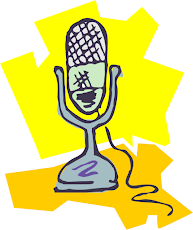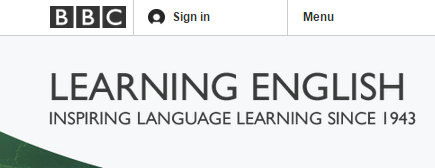Look at these Japanese inventions.
What are they used for?
Do you think they are useful?
Have you got one of those things you use for ...?
Have you got some of that stuff you use for ...?
Often we do not know the name in English for something. Even native English-speakers do not know the names of many tools, instruments or products they may need.
It helps if we can DESCRIBE the object we need the best way we can.
Remember the ORDER OF ADJECTIVES we studied last week? (opinion -> size -> age -> shape -> colour -> origin -> material -> purpose). These can also help us describe something we do not know the name of so someone else can guess and help us.
eg.
Person A: Have you got some of that black, sticky stuff you use for cleaning shoes?
Person B : Do you mean 'shoe polish'?
Person A: Yes, that's it! Have you got any? Can I borrow some?
Person B: Sure! Here you are.
Person A: Thanks a lot
Person B: You're welcome.
PAIR WORK:
With a friend create some dialogues like the one above. Pretend you do not know what these objects are:
PLIERS
AN EGG FLIPPER
CHOP STICKS
A SET OF SCALES
With a friend record a DIALOGUE at Voxopop in the discussion called BORROWING THINGS / ASKING FOR STUFF ... CLICK HERE
PASSIVE VOICE:
In class we have been using the ACTIVE VOICE to describe objects. However, we often use the PASSIVE VOICE INSTEAD.
eg. ACTIVE VOICE :
You use a set of scales for finding out how much you weigh.
PASSIVE VOICE:
A set of scales is used for finding out how much you weigh.
We use PASSIVE VOICE when we are more interested in what the OBJECT does rather than who the SUBJECT of the action is.
CLICK here to do an exercise on WHAT THINGS ARE (USED) FOR
ACCESS 2 & 3
A CAR FOR EVERYONE?
Would you like this car? It's from India. What is it's name? What type of car is it?
CLICK HERE FOR THE WORKSHEET. PRINT THE WORKSHEET AND WATCH THE VIDEO AGAIN. ANSWER THE QUESTIONS.
We studied the following in class:
Used for / used to (purpose)
used by (person)
to be used to (accustomed)
used to (remote past tense)
Study the difference in meaning.
Exercise 1:
Do this exercise Used to do or Be Used to. Click here.
Exercise 2 :
Write a short paragraph in the COMMENTS section below.
Tell me what you think about the REVA Electric car? What do you like about the car? What don't you like? Are there problems with REVA , especially driving here in Australia?
Thursday, July 30, 2009
Subscribe to:
Post Comments (Atom)

















I like small car. but this car sound like too small, not for a family car.
ReplyDelete